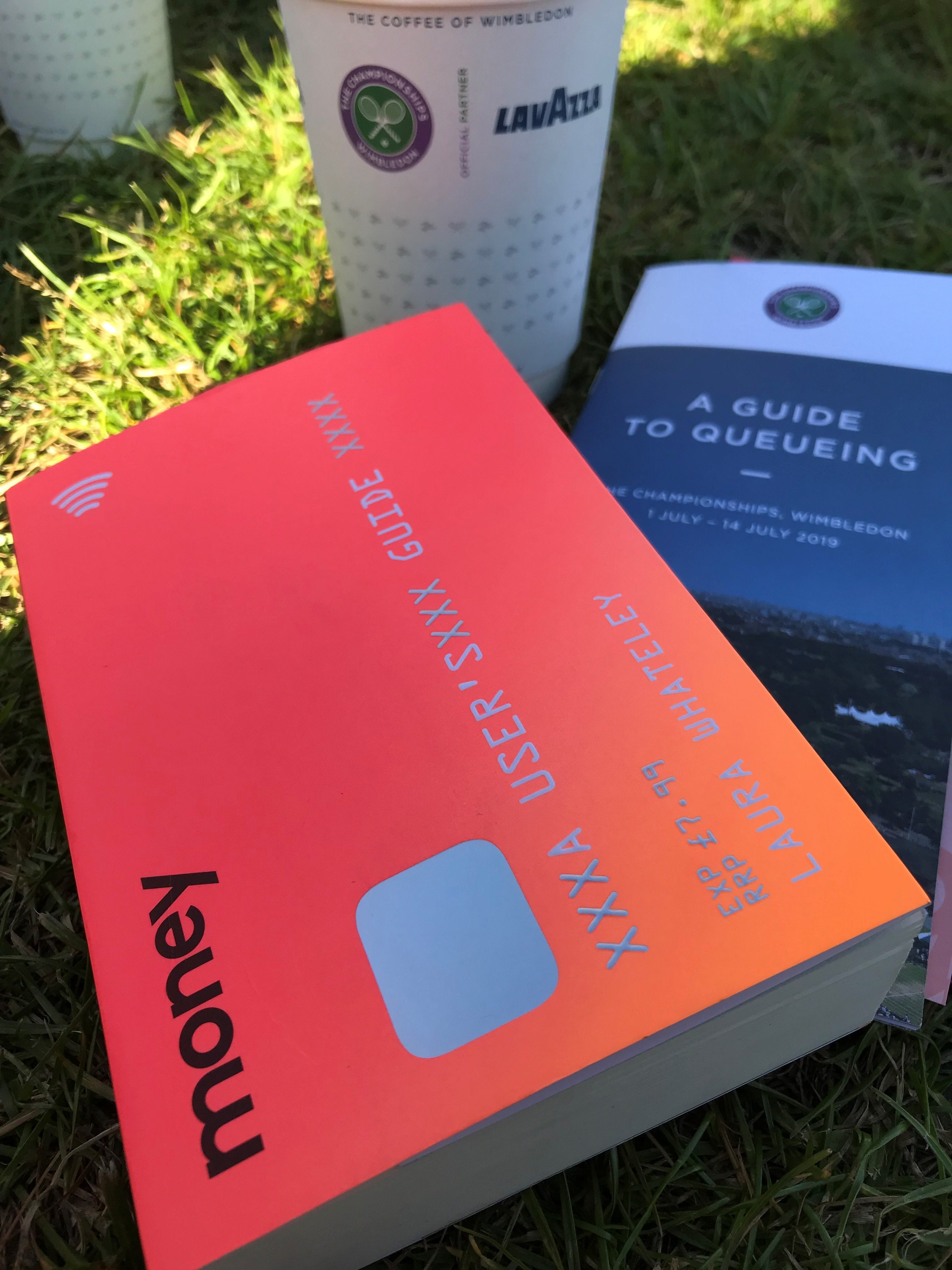This book is a fantastic way to up your knowledge of money and how to handle it. You’ll learn about renting, buying a house, debt, budgeting, saving, investing, pensions, tax, bills, and insurance in just 364 pages. Laura is a natural writer, making you feel like you’re getting advice from a close friend rather than a stranger who writes for a newspaper.
What's Included?
You’ll learn about renting, buying a house, debt, budgeting, saving, investing your money, pensions, tax, bills, and insurance in just 364 pages.
Laura is a natural writer, making you feel like you’re getting advice from a close friend rather than a stranger who writes for a newspaper.
My only issue is the section on credit scores – this information follows the generic information that marketing has offered us for years. To find out about all things credit scores, take a look at the Credibble blog, and maybe even sign up for an account!
This adorable pocket-sized book designed to look like the face of a Monzo card is fantastic in teaching you how to manage your money. Her honest tone makes you want to keep reading – the perfect voice for such a taboo and often complicated subject.
Laura keeps the mood light, gives great examples, and tells some downright hilarious stories. You feel like you’re reading advice from a close friend.
Here are some of the interesting things you can learn if you read Money: A User’s Guide
You may be investing in guns through your pension
This one shocked me – I always gathered that my pension was being invested but it never occurred to me what it was investing in. Your pension is put into a ‘default fund’. Most people simply leave this to do its thing, without ever changing it.
The good news is, you can find out what you’re investing in, and you can change it. The even greater news is that you could earn more on your pension by moving it out of the default fund because the default fund is often very cautious in investing.
Your email account, the time of application, and even your social media posts may be impacting your mortgage application.
This one doesn’t really shock me at all. Lenders are trying to work out how risky you are to determine if you’ll actually pay back the money that you are borrowing. If they find that a high proportion of their riskiest borrowers have an AOL email address, they might start judging you on your email address.
Similarly, if you’re making an application at two-o-clock in the morning, you may be seen to be impulsive, even if you’ve been planning your application for a long time.
Laura also suggests that you don’t post anything on social media that you don’t want to be judged on.
We’ve all heard this when it comes to getting a new job or applying for university, so you should apply the same logic here.
You can now rent a property without a deposit
When you rent a property, you are often asked for several weeks of rent upfront in the place of a deposit. When you move out, if you haven’t completely trashed the place, you get the deposit back. Since earlier this year, your landlord can now hold no more than six weeks rent as a deposit.
However, you can now rent without a deposit. There are companies like the Zero Deposit Scheme and Reposit where you only pay them the equivalent of one weeks’ rent and an annual fee. This is like insurance for the landlord. If you choose to do this, it might be cheaper upfront, but it will cost you more long term.
Nobody really cares about your student loans
Let’s be real. Student loans in the UK aren’t actually debt. They don’t sit on your shoulders or make you feel like a slave to the lender like other debts might.
You don’t have to pay any of your student loan back until you are making enough money to make repayments and even when you are making repayments, they’re so small in comparison to your salary that you’ll hardly even notice. A lot of people never pay off their student loans in full and that’s not a problem at all because it isn’t debt that’s passed on to your family when you die. It’s written off long before that anyway.
Furthermore, you’re not judged on your student loans by lenders. You won’t be able to see them on your credit report – this isn’t a mistake.
A person on the street is more likely to tell you their favourite sex position than their bank balance.
Since reading this book, this has been my go-to fun fact. People seem a little shocked at first, but will nod their heads, understanding the logic and worrying that I’m about to ask them for their bank balance.
Put simply, your bank balance is a taboo, especially if it’s in the negatives. People don’t want to admit to having little or no money – this is all about keeping up appearances. Everyone wants a great salary and failing that, they want people to think they have a great salary; it’s completely natural and completely hilarious that disclosing your bank balance is ‘too personal’ while your favourite sex position is completely shame-free for everyone to know.
Lenders don’t use your credit score.
Okay, so Laura didn’t quite say the last thing, but she touched on it:
‘[Lenders] have their own arcane bespoke credit-scoring system, based on what factors they deem important.’
Laura follows on to say that ‘nobody really knows how it all works’.
The good news is: we do know – and you can too!
Credit scores are confusing – you have three different ones, they’re all judged by different things and out of different numbers, but this is how it’s determined that you can (or more often can’t) have a mortgage? In truth, the credit score is just the front of a complicated system that doesn’t really help you at all.
Your credit score is a judgement of what the credit bureau thinks of you – this bit is true. However, the credit bureau isn’t lending you money, and they’re certainly not the ones making the decision on whether or not you are lent money. So, why wouldn’t you, instead, find out the likelihood of the lender that will be (hopefully!) lending money to you?
Lenders do use your credit report, but they judge the individual factors on it differently to how the credit bureau does. This is where Credibble comes in.
Credibble.com shows you your credit report through the eyes of a lender – you can see exactly what lenders are looking at and receive personalised tips on how to improve it through their handy ‘Score Booster’.
All in all – I’d recommend this book to anyone who uses money. There are parts that would only apply to you if you’re under the age of thirty – but everyone can benefit from learning more about money and how they manage it. And, if you don’t want to read the book, take one thing from this article and change the fund that your pension is investing. You’ll thank yourself (and me!) when you’re retiring with over £100,000 more in your pension.
I you want to buy Money: A User’s Guide it’s currently only £2 on Amazon*. Not a lot of money for a book that will save you a ton!
*Price correct at time of writing. Don’t @ me if it goes up!
Credibble offers two fabulous solutions
If you’re preparing to take a mortgage, never apply until you’ve tried our unique and FREE Credibble Home app. Our smart technology will tell you what you need to fix so you avoid rejection. The app predicts when you will be able to buy, for how much and tracks your month-by-month progress to mortgage success. We’ve even added your own mortgage broker, so you get the best deals available.
More focused on your credit rating? Well, get started for free with Credibble’s 24- Factor Credit Check to truly help you improve your creditworthiness and how lenders view you. (Remember: lenders don’t use your credit score! We’ll show you what lenders look for and how to get your credit report in the best shape possible).
Last updated by Oliver Macmillan, May 2022









